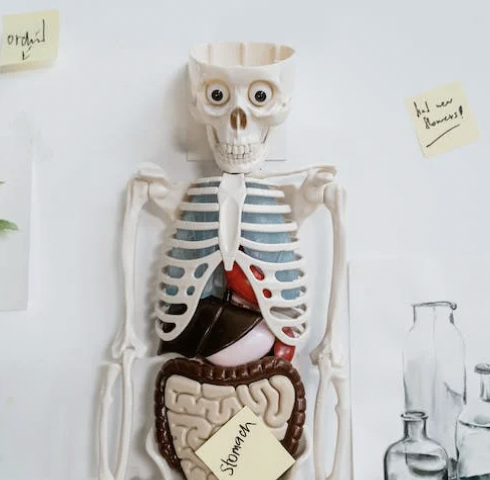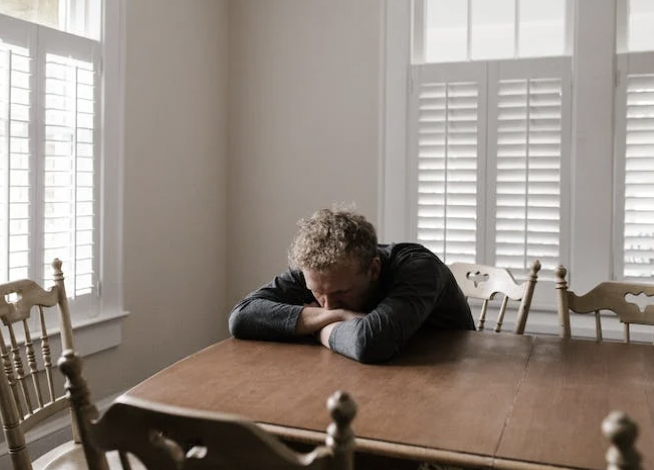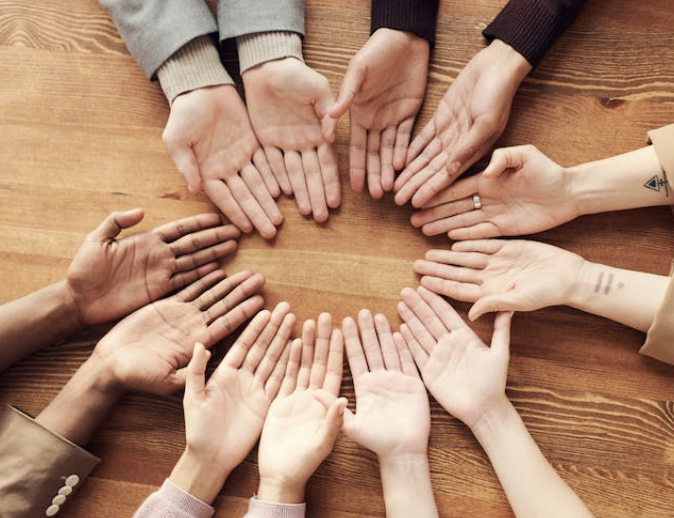
Healing childhood trauma Pt1o
In this last section of the healing from childhood trauma series, today’s blog, along with the next two weeks, deals with the last stages of healing. We come to this after significant work had been done understanding, then making changes, interrupting old patterns of thinking and behavior. Support systems are in place. Significant spiritual and trauma body work have been done. It is then that we can find a healthy connection with the past instead of a broken one. It is then we can embark on a new life instead of constantly struggling to survive the old one.

healing childhood trauma pt9
Talking about spiritual things these days is nearly as hazardous as talking about politics. I know that those who read my blog come from a myriad of backgrounds and faith traditions including no tradition, so it is with a bit of caution, I approach this subject as I share a bit of my own spiritual journey.

healing childhood trauma pt8
Internal, external and spiritual are three shifts that need to occur along the journey of healing from childhood trauma. This week’s blog is about external change. Until you add an external change of action to internal belief, no amount of inner healing will translate into real transformation. Let me give you an example.

healing childhood trauma pt7
The third task of healing from childhood trauma addresses three shifts that must occur in order for the healing journey to come full circle; internal, external and spiritual. These are not linear but occur in layers. We finish with one then move on to the next, then come back around and do it all again. I don’t want to sound discouraging. You are not caught in a never ending loop. But, as survivors, part of what we need to accept is the depth of chronic childhood trauma. You can’t possibly process it all in one go. It is going to take time. It’s easier if you look at it in layers and not as a linear check list.

eat the cupcake icing first
There is great beauty to life. An Arizona sunset, the way a fantail grackle struts around searching for scraps. Pure white petunias, the smell of a citrus tree in Springtime. The fellowship of deep friendship, the unity of love. The swell of a symphony, and the colors in a painting. These and more are the things childhood sexual abuse and trauma take away.

healing childhood trauma pt6
It’s easy to talk about healing and lofty ideas like truth on the other side of pain, but when I remember what it was really like, the despair, the circular thoughts, the self-hatred, I remember how hard it was just to put one foot in front of the other. I lived in flashback all the time. All... the... time.

healing childhood trauma pt5
If you don’t know that pain is part of processing childhood trauma, you might think you are crazy or that healing is hopeless. Neither of those things are true. Processing the pain begins with breaking through denial discussed in the previous blog. This blog is about sadness and confusion.

healing childhood trauma pt4
The first task of healing childhood trauma is acceptance—accepting the fact of your abuse, accepting the meaning of those facts and lastly, accepting the irreversibility of the abuse. The first task occurs in the head—the second occurs in the heart. My family system was run like a cult so accepting the truth took a long time. It was like trying to untangle a gigantic ball of knots. As I read, researched and listened, the mess that was my family system began to come into focus. But that was only the first task of healing.

healing childhood trauma Pt3
Sitting alone in our family therapist’s office, I finally asked the burning question that had plagued me for so long. “Do you think my parents will ever change?” I held my breath. This was it. I had summoned enough courage to say the words out loud. It had been a long, slow slog through suffering taking more than a decade to come to a conclusion. The decade of distress, I called it. That season began with the phone call I received from my father. “Your mother isn’t doing well.” That was the understatement of the year. She was having a nervous breakdown.

healing childhood trauma pt2 meaning
What Does Trauma Say About Me?
I sat on the back porch of our custom built little house in the woods of Virginia. I had everything I’d ever dreamed of except for one thing. A life. I thought I’d be free. Instead, I was drowning in Complex trauma symptoms. Anxiety had turned into constant terror. Depression as black as a starless night hovered over me all the time. Chronic pain and debilitating illness had pushed me into almost total isolation. I had plenty of time to mull over the past and torment myself.

healing childhood trauma PT 1 ACCEPTANCE
~The things we have stored away deep in our heart grapple with reality
In any type of loss, there is a period of time when the loss does not seem real. When dealing with the pervasive and multi-layered losses caused by long-term childhood abuse, the devastation is so profound, a word has been invented to describe it. CPTSD or complex post traumatic stress disorder also known as Complex trauma. Complex trauma is caused by a series of repeated abusive experiences in childhood. They can include but are not limited to maltreatment, verbal, emotional, sexual, physical abuse and neglect. The child finds themselves living in a situation in which they have little or no control nor is there any hope of escape. Complex trauma is invisible affecting our neurological, psychological and emotional development. It is exactly like growing up in an abusive cult. The mind-control and emotional damage are the same.

why are dysfunctional families so oppressive?
This is the sixth and last installment in a series of blogs on relationship patterns found in dysfunctional families. We have seen how abusive families put members in roles and the way abusers dodge responsibility by blaming others and forcing children to become adults. The family system is built on lies running over personal boundaries and destroying any healthy sense of self in its members. These relationship patterns work together to form a web of what I call oppression. It is so pervasive, so overwhelming, that leaving the family culture feels impossible.

what is enmeshment?
Enmeshment describes a relationship pattern between two people or a group of people in which personal boundaries are unclear. It is a hallmark of dysfunctional families and affects relationships inside and outside the family. Inside the family, personhood is not encouraged nor respected. Outside the family, people-pleasing compulsions can be crippling. Survivors of enmeshed systems struggle with a sense of self and may find it difficult to assert themselves. The boundary crossing is done in secret and can be emotional as well as physical.

The False Narrative
When you look at patterns within dysfunctional family systems, without fail, you will find the hallmark of a false narrative. The engine of the family system runs on untruths, half-truths, and constructed reality. And it doesn’t start where your story begins. It starts with the stories of your parents.
Abuse flourishes in the fertile soil of past abuse. My parents grew up in similar systems to mine and in many cases, even worse. My parents had an inability to be emotionally available. That may be the understatement of the year. They were totally checked out, unable to meet even the most basic emotional needs of each other or of their children. Even friendships were affected. It screwed up every single relationship in their lives.

What is Parentification? Roles in family systems Part II
My brother glanced at me as we “read” the emotional temperature of the room. What was tonight going to be like? My mother already had one of those frown’s on her face.
As expected, she began her nightly diatribe. “These kids have been terrible all day. I don’t know why they won’t listen. I’m so miserable. I can’t get any one of you to help me do anything.” She turned to me and screamed. “STOP KICKING THAT TABLE LEG.”
On cue, the terrifyingly dark cloud that was my father, rolled in. His voice commanded total obedience. “I don’t want to hear it tonight.”

What are the roles in dysfunctional family systems?
I was finally old enough to go to school and get away from my mother’s screaming, beatings and sexual abuse. My older brother and I smiled together as we got on the school bus that day. We were both glad to be getting away.
First grade was the first time in my life I felt understood. I loved everything about school. The snacks, the smell of mimeographed worksheets, learning how to read and write, the playground, and most of all, I loved my teacher, Mrs. King. She was one of the first adults who ever loved me back. It was a glorious year. And then...it came to an end.

How Trauma Impacts Relationships
How childhood trauma affects relationships
The early bonds of childhood forever imprint how we view the world and our place in it. In the video this week, Adrienne Wells expresses how trauma changed her world.
Her answer to the question, “How did trauma affect you?” is shattering.
“To me, it was normal.”
And therein lies the problem. All relationships are viewed through a broken lens. If your own mother and father betray you, what chance does a romantic relationship have? How can you parent when the only pattern you’ve experienced is abusive? If you view relationships with fear, guilt and threat, how can you ever learn to trust?

Five Life Management tips
I hope you see the past four weeks of life management as an invitation to the party of life. It will be the hardest journey you will ever take, but it will be worth it. Life management is not about exercise or staying on a schedule or doing meditation. It is about using those things to heal. It is about changing the inside so the outside can embrace joy. In this last blog of the series, I would like to leave you with these final thoughts.

what is meditation?
Meditation is ceasing daily activity and entering into a focused time of attention on the inner life.
Meditation has been proven to reduce stress and anxiety. It helps with depression management and can even lower your blood pressure and strengthen your immune system. But more than that, meditation gives trauma survivors an invaluable tool.

What are some life management skills?
“Schedule?” You ask. “It can’t be that simple.” Well....I’m not talking about just any old schedule. And I’m not talking about the schedule you think you’re already on. How would you answer the following questions: Is my day driven by the most urgent thing that comes into my mind? Is my day driven by the most pressing thing that presents itself at my job? Do I find myself rushing through task after task all day long only to feel a sense of despair at the end of the day?
That breathless careening dash through life is a direct result of trauma laid down in the early years of childhood.